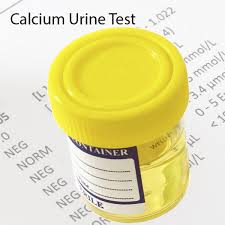A calcium in urine test measures the amount of calcium in your urine. Calcium is one of the most important minerals in your body. You need calcium for healthy bones and teeth. Calcium is also essential for proper functioning of your nerves, muscles, and heart. Almost all of your body's calcium is stored in your bones. A small amount circulates in the blood, and the remainder is filtered by the kidneys and passed into your urine. If urine calcium levels are too high or too low, it may mean you have a medical condition, such as kidney disease or kidney stones. Kidney stones are hard, pebble-like substances that can form in one or both kidneys when calcium or other minerals build up in the urine. Most kidney stones are formed from calcium.
Too much or too little calcium in the blood can also indicate a kidney disorder, as well as certain bone diseases, and other medical problems. So if you have symptoms of one of these disorders, your health care provider may order a calcium blood test, along with a calcium in urine test. In addition, a calcium blood test is often included as part of a regular check-up.
Other names: urinalysis (calcium)



 Contact Us
Contact Us






 Hospitals
Hospitals
 Doctors
Doctors
 Diagnostic
Diagnostic
 Pharmacy
Pharmacy
 Health Tips
Health Tips
 Blog
Blog

























Comments